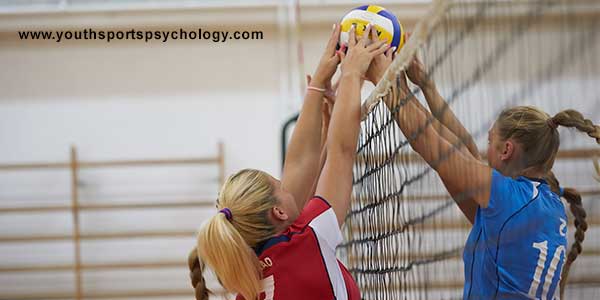
What is Social Media Doing to Athletes Today?
Tricia Roos, Bishop Lynch High School’s head women’s volleyball coach, says that social media has changed how the members of her team focus and talk to each other.
“For example, we were at the state competition a couple of years ago. The teens were at dinner, all looking down at their phones. I said, ‘Put your phones down.. You are all here right now. These are your best friends. Talk to each other.’”
The players responded that they were talking to each other–via text.
However, this way of communicating is a challenge when it comes to sports.
“Think about sports. You have to verbally communicate on a court,” said Roos.
“If you have a question for a coach, coaches want an in-person meeting. It has been harder for teens to do those things over time, they’re so used to hiding behind their phones.”
This also makes the teens harder to coach; they’re not used to as much personal interaction, she said.
The players’ focus on social media also affects their mental game. The teens who are sensitive to what others say about them, especially on social media, will worry about what others think of their performance, said Roos.
One of her players, for example, is a people pleaser. “Her personality is always happy. She wants to make others happy. She never wants to disappoint her friends or parents. When she makes mistakes in games, she feels that she’s disappointing others.”
Players, like this teen, who worry about what others think, need to learn to focus on their strengths, said Roos.
“I suggest to the players visualization before a game or match. I tell them, ‘Close your eyes and be in the dark. Put your earbuds in and listen to music. If you had video or highlight reel of every thing you’ve done great, go through that highlight and remind yourself you are capable of being successful,’” said Roos.
Kids who are people pleasers are prone to worry too much about what their teammates think of them. They make assumptions about what others think, which we call mind reading.
When your athletes mind read, they’re distracted and also feel pressure to do well for others.
Remind your athletes what’s relevant to focus on when performing and to refocus if they start to wonder what teammates think.
Related Articles on Kids’ Mental Game:
- How Social Media Hurts Sports Kids’ Confidence
- Helping Kids Stop Socializing Before Games
- How This Sport Builds Confidence and Focus in Kids
*Subscribe to The Sports Psychology Podcast on iTunes
*Subscribe to The Sports Psychology Podcast on Spotify
Improve Your Mental Game From Anywhere In The World

We’re certain that, as a parent, you want to help your child develop confidence and discipline in sports and life. And as a sports parent, you’d love for your children to reach their potential in sports. But encouraging your child to strive for greatness without pressuring them can be a challenge.
You can get expert mental coaching with us from anywhere. Meet with us via Zoom, Skype, FaceTime or phone call. With today’s video technology, we are able to connect with athletes and coaches all over the globe.
Call Us Today to Schedule Your Free 15-Minute Session.
Find Out How Your Athlete Can Benefit From One-on-One Mental Coaching!
